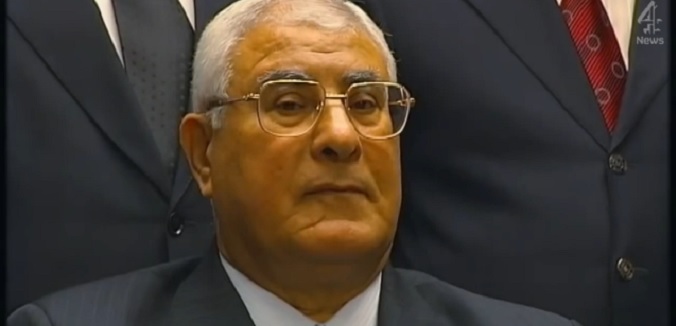Arab League officials over the weekend predicted that the bloc’s upcoming meeting in Kuwait will revolve around “rifts” dividing the Arab world, with both international wires and regional outlets using the phrase. Egyptian Foreign Minister Nabil Fahmy gave comments on Monday that – even under interpretations that have the various parties seeking to dampen tensions – firmly reemphasized the point:
“I don’t expect us to leave the Kuwait summit with the parties convinced that the situation has been settled, because the wound is deep,” said Fahmy in reference to Qatar’s standing with fellow Gulf states and Egypt. “Even if we reach a [solution], which is unlikely, we all need a period to translate this solution into a real commitment to viewpoints and implemented steps that reflect a change in policy.” The foreign minister said he did not meet with the Qatari foreign minister ahead of the summit, reiterating the “deep issues” that exist between Egypt and Qatar.
Cairo and Doha find themselves split across two out of the three regional camps that analysts have seen harden in recent years. A bloc of the U.S.’s traditional allies – Egypt, Jordan, and most of the Gulf countries – have found themselves on the same side of the region as Israel, with quiet cooperation deepening across a range of areas. U.S. allies have become aligned in various ways opposite a second bloc made up of Qatar, Turkey, and the Muslim Brotherhood, and both of the camps are in often open conflict with Iran and Iranian-backed proxies across various theaters.
Cairo – followed by Saudi Arabia, Bahrain, and the United Arab Emirates (UAE) – pulled its ambassador from Qatar over Doha’s ties to the Brotherhood. For good measure the Egyptians and the Saudis also formally outlawed the Islamist group as a terrorist organization.
The divisions have complicated U.S. diplomacy toward the region across a range of issues. President Barack Obama is set to visit Saudi Arabia on Friday. Gulf countries have been openly furious with the administration for what they insist is disregard for the dangers posed by Iranian expansionism, on the one hand, and by Sunni radicalism, on the other.
There had already been leaks that the Saudis intended to have a very candid discussion with the President over the administration’s Egypt policy, stretching back to the 2011 overthrow of Egypt’s then-strongman Hosni Mubarak. Administration officials are working to emphasize that they get it:
Obama will hold talks with King Abdullah on a range of key bilateral and regional issues, said Johann Schmonsees, US Embassy spokesman, on Saturday.
“It will be an opportunity to reinforce one of our closest relationships in the region and build on the strong US-Saudi military, security and economic ties that have been a hallmark of our bilateral relationship,” said Johann. “The two leaders will discuss our ongoing cooperation to advance a range of common interests related to Gulf and regional security, including the situation in Iran and Syria, negotiations between Israelis and Palestinians, countering violent extremism and other issues of prosperity and security,” he said.
The State Department and the White House have been heavily courting the Arab League for support on among other things the Israeli-Palestinian peace process. Secretary of State John Kerry has more specifically called for help in overcoming Palestinian Authority (PA) President Mahmoud Abbas’s ongoing rejection of a U.S.-backed framework.
[Photo: Channel 4 News / YouTube ]




